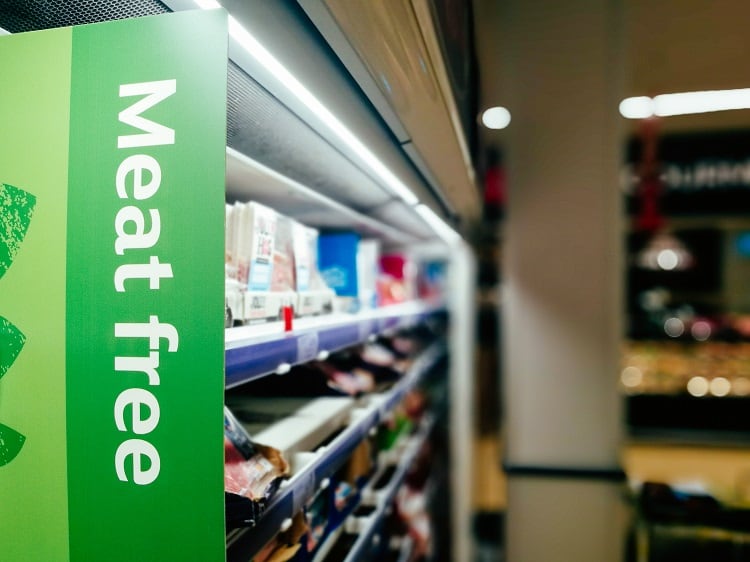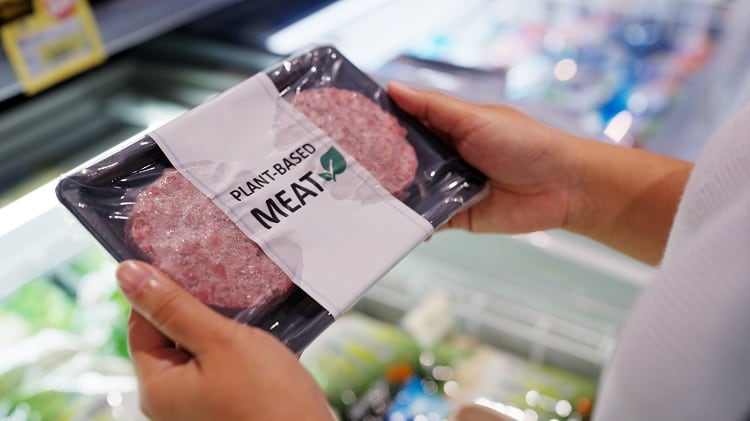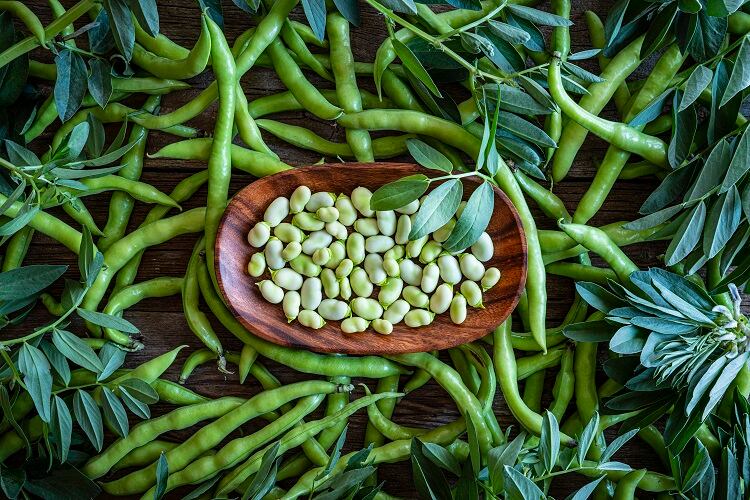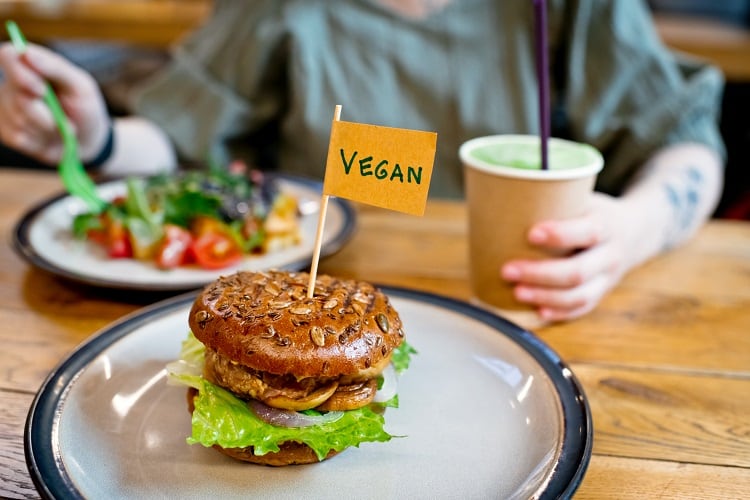In many ways, Europe has seen substantial successes in its plant-based industry. A range of European brands have developed meat alternatives, many of which have done well, and have even seen greater success in Europe than in their homeland.
However, there are still obstacles to full adoption of plant-based. One of these is policy: how does the European Union itself help, and hinder, the emergence of plant-based brands?
What are the obstacles to full adoption of plant-based in the EU?
The European Union spends a lot of its budget on agriculture. It’s common agricultural policy (CAP), for example (see boxout), makes up nearly a third of all the money it spends.
But, according to Rafael Pinto, EU policy manager for the European Vegetarian Union, an umbrella organisation for European vegetarian and vegan organisations throughout Europe, this policy favours meat far more than plant-based.
“If you want to start a farm producing pulses, you're going to see that the support that you get is not quite the same that you get if you wanted to start producing milk or any other dairy product or any other animal product,” he said at ProVeg International’s Smart Protein closing conference in Berlin last month.
This, in his view, distracts from the CAP’s overall goal of being a food and health policy. “We need to make food and health and environmental impact of the common agricultural policy a priority.” The CAP, according to the EU, ‘is about food, the environment and the countryside.’
The Common Agricultural Policy (CAP)
The Common Agricultural Policy (CAP) is the agricultural policy of the European Union. It implements, among other things, agricultural subsides. According to the EU, it represents 31% of its budget. According to a recent Nature study, over 80% of the CAP supports animal products.
Its money, suggested Pinto, should be used differently. “To implement further support for plant-based proteins, the CAP already has the needed instruments. Coupled income support should be mainly allocated to the production of pulses for human consumption.”
Some EU funding policies, suggested Rune-Christoffer Dragsdahl, secretary general of the Vegetarian Society of Denmark, rely partially on the company or organisation funded, bringing their own money to the table, between 40% and 60%. This, he suggested, benefits established companies in established industries, including meat. ‘Infant industries’, like plant-based, struggle.
“The own contribution requirement, which is normally a healthy business principle, directly discriminates because it favours what is already there,” he said at the conference.
How should qualms about plant-based be quashed?
One crucial part of challenging the negative view of plant-based meat is addressing, rather than ignoring, criticisms. For example, the many critiques of its health content, suggested the Vegetarian Society of Denmark’s Dragsdahl, cannot be sidelined. In order to establish trust in the plant-based sector as a whole, the healthiest plant-based alternatives must be prioritised.
“The way to gain the trust of a lot of people is focusing on healthier versions of imitations,” he said, “because I do think we . . . cannot afford to not have the health professionals on board. And to get the health and nutrition professionals on board we need to be honest.”
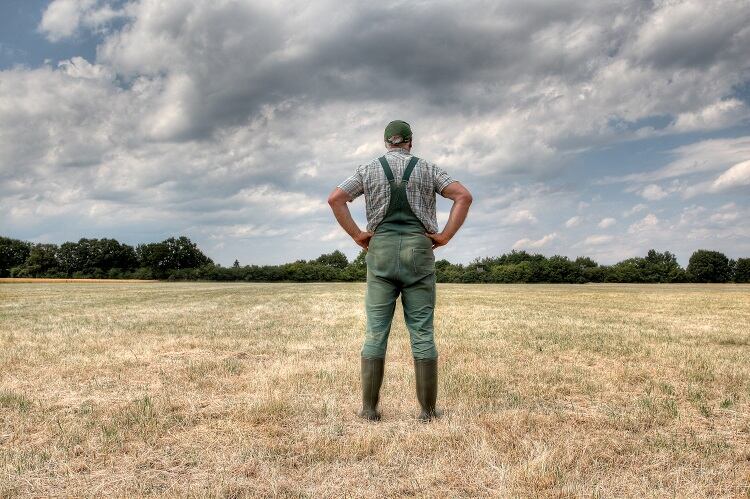
We need, he suggested, to admit that some plant-based products are, health-wise, subpar, although many are still healthier than meat.
Another obstacle is farmer reluctance to embrace the plant-based trend. Some farmers may fear that plant-based meat could be a threat to their livelihoods.
“What we need to ensure is that farmers have the training and support to produce more of these crops and increase productivity. One way to do this is by creating premiums for plant-based protein in the CAP. We also need to better establish supply chains and promote demand. Here, we can use current public procurement tools, such as in public canteens, but also other instruments like the Promotion Policy and advertising regulations,” the European Vegetarian Union’s Pinto told FoodNavigator.
He suggested that consumer preferences are fast turning towards plant-based, and that governments must provide political support for farmers to transition towards producing plant proteins if they are not to be left behind.
“We need to talk much more to each other. It is easier to think someone is your enemy, if you don’t meet them and talk with them,” added the Vegetarian Society of Denmark’s Dragsdahl.
I believe this is first and foremost about focusing on diversification. There are big business opportunities. In China and other Asian countries, meat imitations are completely normal, and there is a big market waiting for anyone able to develop the most delicious products with the most convincing texture and umami flavour.
“The farmers should engage in cooperatives taking ownership of the development of these new products, so they also reap the rewards.” For example, a key Danish cooperative, Danish Agro, recently brought a share in Organic Plant Protein, a large plant-based company.
How will the EUDR affect plant-based proteins?
Some key plant-based proteins come from crops covered by the upcoming European Union Deforestation Regulation (EUDR). While many plant-based manufacturers aim for sustainability, the EUDR will put their products to the test.
“The EUDR made even clearer the need to invest in plant-based protein production in Europe,” the European Vegetarian Union’s Pinto told us.
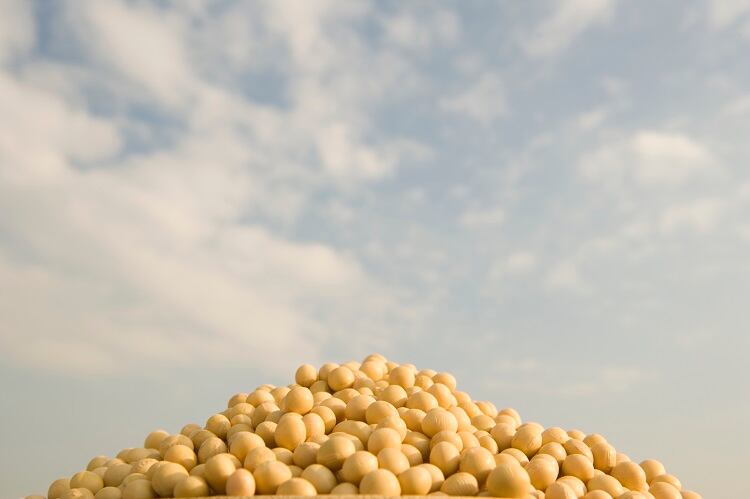
“Despite the fact that most pulses for human consumption in Europe are produced in the internal market, a significant part of our demand for leguminous, protein and oilseed crops is sourced in third countries, especially for animal feed. As we know, the main cause of deforestation globally is agriculture, especially the production of livestock and its feed, which poses not only sustainability challenges but also raises food security issues.” However, he emphasised the importance of focusing on what our proteins come from, as well as where (or in other words, plant rather than animal).
Soya, with its links to deforestation, is one of the products affected. According to Leopold Rittler, head of research and innovation at the Donau Soja Organisation, which supports Europe’s soy sector, the EUDR is highly relevant to plant-based soy. “Due to soy’s important role as raw material for the plant-based food sector, the EUDR is a highly relevant policy,” he told FoodNavigator.
“EUDR requirements will impact imports to the EU as well as local supply-chains. The long-term impacts are hard to predict,” he added. “A likely scenario is that short and transparent supply-chains will easier fulfil the EUDR requirements (and at lower cost) and hence EU soy cultivation might be in a better position than imports.”
“The EUDR regulations should mostly affect animal proteins, as the key driver behind deforestation is animal agriculture. This includes beef as well as the soy used for animal feed in e.g. pig production,” added the Vegetarian Society of Denmark’s Dragsdahl.


